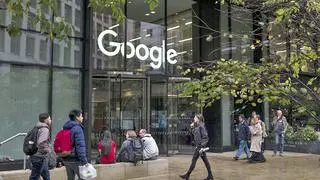Awaaz.De, a communications platform driven by basic phones that use the medium of voice to give information and advice on agriculture, finance, health, education and governance, was set up in Ahmedabad in 2012. The mobile solutions company gathers data on land size, crops and selling prices, and creates social networks for farmers to exchange information on increasing output and market access. It has also been working in Gujarat on precision farming. Elliot Rosenberg, Vice-President - Business Development, who settled in India after backpacking across 17 Asian countries, sees the future in India, going by its success in information technology. Edited excerpts from an email interaction:
How are you helping small and marginal farmers, who form the majority in India and are not digitally literate?
We help agriculture organisations deliver timely, localised farming advice to small farmers through voice messaging to any phone in any language. We catalyse organisations, say Farm Scientist, to give customised information to farmers, as well as tap the collective wisdom of small farmers, to promote profitable and sustainable practices. A two-year Harvard Business School research study on Awaaz.De in Gujarat estimated that every $1 invested in our systems generated $10 in value for small farmers from higher productivity. The researchers found that farmers with access to our Q&A line and farmer-to-farmer information-sharing achieved 26 per cent higher yields through optimised input usage.
Which States are you working in, and when did you start this programme?
Awaaz.De has worked across 23 States and was founded in 2012. The company emerged from CEO/Promoter Neil Patel’s Stanford University PhD research in computer science that focussed on boosting small Indian farmers’ income through better information access.
What are the main challenges you face in India in working with the farming community, among whom digital penetration is poor?
The primary challenge is changing farmer behaviour, as doing so requires continuous engagement and reinforcement through multiple channels, both in-person and tech-enabled. Ultimately, we do not maintain a physical field presence and depend on effective field partners, who hold the trust of farmers and can leverage our technology.
How do you get feedback from farmers and how often?
We (and Awaaz.De’s users) receive daily feedback from farmers in the form of questions and tips, as well as compliments and criticisms, about the information shared. Farmers have even submitted exuberant recordings of songs and brief dramas about the benefits of our system.
What are your future projects? How much investment are you looking at in the near future?
In agriculture, we are excited about our project serving Digital Green in collaboration with the Ethiopian government, which USAID (United States Agency for International Development) has funded to reach 12 lakh farmers. (Digital Green gives targeted agricultural information to small and marginal farmers in India through interactive videos produced by farmers and experts). Furthermore, we look forward to scaling our work with precision agriculture for development in Gujarat by tapping hyper-local data and user-generated content. We have already raised ₹60 lakh in investment from angel investors Samir Shah, Varun Aggarwal and Vijay Aggarwal.
You are so widely travelled, what made you opt to work in India?
India is the future. That is why I moved my life here with no plans to return to the comfort and familiarity of the US. The challenges in India are daunting, but the potential for building an equitable society through impactful businesses is unparalleled. Moreover, India’s diversity of people, veneration of education (that transcends social class), and well-established tech industry make the country superior to other developing nations.








Comments
Comments have to be in English, and in full sentences. They cannot be abusive or personal. Please abide by our community guidelines for posting your comments.
We have migrated to a new commenting platform. If you are already a registered user of TheHindu Businessline and logged in, you may continue to engage with our articles. If you do not have an account please register and login to post comments. Users can access their older comments by logging into their accounts on Vuukle.